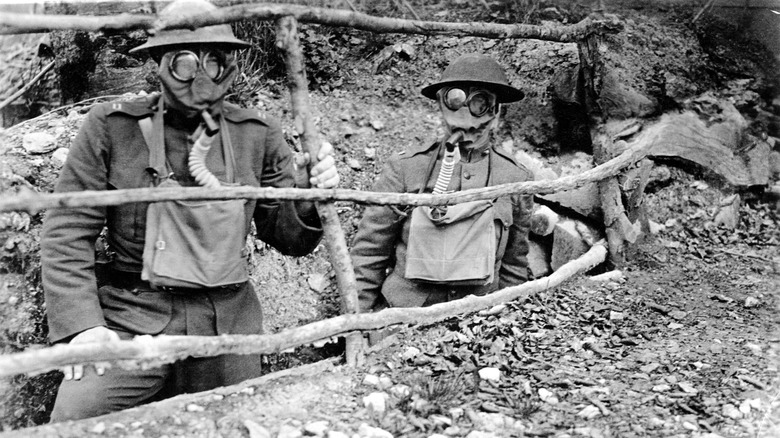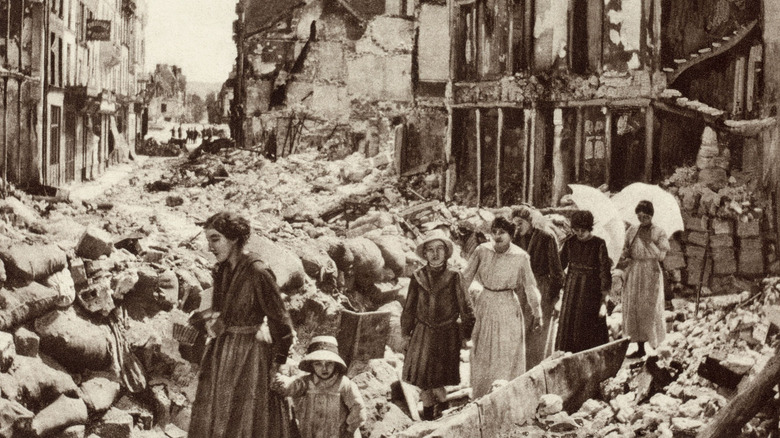How American History Classes Lie About WW1
World War I was without a doubt the defining event of the 20th and 21st centuries. Radical changes came during and after the war, including the collapse of monarchy as a standard government model, the rise and expansion of the Soviet Union, and the creation of the future Axis leaders. The war itself was a horrific affair, with 17 million killed and many more left with life-changing wounds. Despite this violence, America's school systems vary greatly in how they treat the event.
According to Smithsonian, coverage of World War I in history classes is often brief and may not even involve discussion of the United States' involvement. Such an environment can lead to critical misconceptions about the conflict, chief among them being the toll of the war relative to past conflicts. The combination of new military technology and outdated notions of warfare makes it easy to assume that WWI was the deadliest war in history up until that point, per History UK. Yet as the BBC points out, this was not the case for the countries involved or the world at large.
As brutal as WWI was, previous conflicts bore even greater consequences
World War I cost millions of lives around the world, but a far deadlier conflict was waged just a few decades prior. China's Taiping Rebellion, which lasted from 1850 to 1865, claimed the lives of 20 to 70 million people as rebels fought a bloody war against the Qing government. While spread out over a long period of time, estimates of the total casualties are still higher than WWI. Meanwhile, Great Britain, one of the war's key combatants, lost 2% of its population (via Brilliant Maps).
Numerically, this is more than any other conflict. But proportionally, the English Civil War was costlier at 5% of the populace killed (via National Army Museum). The point of this is to illustrate how perspective on the war is critical to understanding its place in history. WWI was deadly — it killed and maimed millions and established world politics for decades. Yet to label it as the deadliest in history (up until that point) is to incorrectly frame it, and American schools would do well to put any claims that it was to rest.

